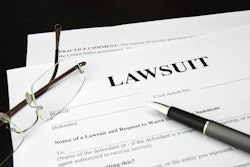A man who is legally blind filed a U.S. civil rights lawsuit on April 16 against a dental practice in Florida, claiming that the office’s website is not fully and equally accessible to individuals who are visually impaired.
Justin Espinal, a visually impaired and legally blind person who needs screen-reading software to read website content, filed a lawsuit in the U.S. District Court Middle District of Florida, Orlando Division, against Greenberg Dental Associates, which operates Greenberg Dental & Orthodontics practices throughout Florida. The site’s inaccessibility allegedly violates Espinal’s rights under the Americans with Disabilities Act (ADA), according to the suit.
“Due to defendant’s failure to build the website in a manner that is compatible with screen access programs, plaintiff was unable to understand and properly interact with the website and was thus denied the benefit of making an online appointment from the website,” according to the lawsuit.
In April 2025, Espinal attempted to schedule a routine dental visit with Greenberg using its website. He allegedly attempted to navigate the dental site using a screen reader but encountered significant accessibility barriers due to multiple factors, including improperly structured headings and an illogical focus order.
Due to these barriers, Espinal claims he couldn’t effectively locate and access the appointment scheduling form. Though these issues have made it difficult, he would still like to schedule an appointment with the practice.
Espinal is seeking an injunction, requiring Greenberg to make the website fully compliant with the ADA so it’s accessible to those with visual impairments. Additionally, he is seeking nominal damages, interest, attorney fees, and costs.
“The fact that plaintiff could not communicate with or within the website left him feeling excluded, frustrated and humiliated and gave him a sense of isolation and segregation as his being unable to participate in the same online experience, with the same access to sales, services, discounts and promotions, as provided at the website and for use in the physical location as the non-visually disabled public,” the legal complaint states.




















